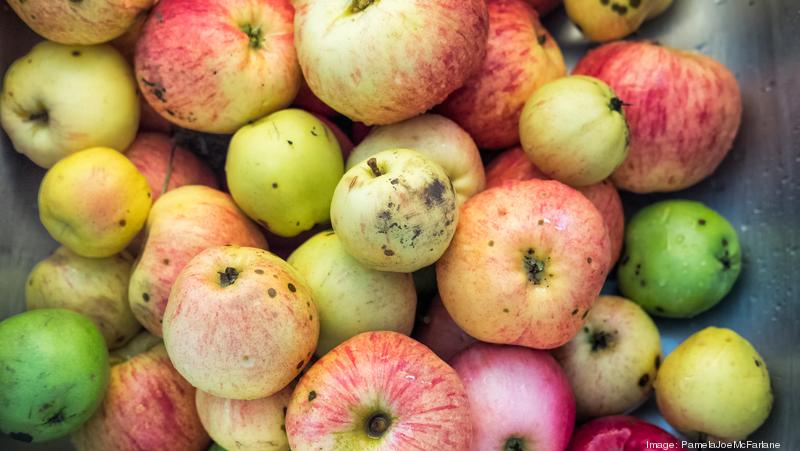Bizwomen – The Business Journals: She got $8.5M in funding to save ugly produce

Getty Images (PamelaJoeMcFarlane)
Full Harvest provides a marketplace for surplus and imperfectly-shaped produce.The USDA and Environmental Protection Agency have called for a 50 percent reduction in food loss and waste by 2030.
by Anne Stych, Contributing Writer
Full Harvest, an online marketplace for excess produce that would otherwise wind up in landfills, has secured an $8.5 million Series A round of financing.
Founder and CEO Christine Moseley said in a statement that Full Harvest, a business-to-business marketplace for surplus and imperfectly-shaped produce, will use the investment to expand nationally and get more produce directly from farms to food and beverage makers.
The startup focuses on vegetable farms greater than 1000 acres and fruit farms larger than 100 acres and connects them with customers, Tech Crunch reports, adding that a series A venture round is rare for female founders, and “even rarer in the agricultural space.”
The San Francisco-based company said it also plans to expand its technology platform and triple the size of its technology, sales and operations teams with a goal of eradicating food waste at the farm level.
“We need to move beyond the archaic nature of buying and selling produce to get the most from each harvest and make sure no food goes to waste,” Mosely said. “Our marketplace will drive a waste-free future on produce farms that benefits growers, food and beverage companies, and consumers.”
The funding is led by Spark Capital. Other investors include Rent the Runway Founder Jenny Fleiss, Cultivian Sandbox Ventures, Jon Scherr of CircleUp and Adam Zeplain of Mark.vc. Previous investors including Wireframe Ventures also joined the round, the company said.
“By aggregating excess produce supply at scale and providing a superior user experience to growers and food buyers via software, Full Harvest is shifting the way the industry thinks about how produce is bought and sold,” said Spark Capital investor John Melas-Kyriazi.
Spark’s Melas-Kyriazi and Cultivian’s Phillips will also join the Full Harvest board of directors.
The U.S. Department of Agriculture estimates that between 30 percent and 40 percent of the food supply in the United States is wasted, and the USDA and Environmental Protection Agency have called for a 50 percent reduction in food loss and waste by 2030.
According to ReFed, a collaboration of business, nonprofit, foundation, and government leaders committed to reducing food waste in the United States, American consumers, businesses and farms spend $218 billion a year, or 1.3 percent of the country’s GDP, growing, processing, transporting and disposing of food that is never eaten.
The number includes 52 million tons of food sent to landfills annually plus another 10 million tons that is discarded or left unharvested on farms.
The EPA estimates that 20 billion pounds of produce goes to waste each year due to surplus or cosmetic reasons while the USDA estimated in 2016, 12.3 percent of homes were food insecure.
Wasting food also wastes the land, water, labor, energy and other inputs used to produce, process, transport, prepare and store it food, the USDA said, generating impacts on the environment that may endanger the long-run health of the planet.
A recent University of Vermont study found that U.S. consumers wasted nearly 150,000 tons of food per day between 2007 and 2014, and that about 30 percent of total calories, 30 million acres of land and 4.2 trillion gallons of water were wasted growing food that was thrown away.
The USDA notes that food waste is the single largest component going into municipal landfills, that decaying food waste quickly produces methane gas, a greenhouse gas that can trap heat in the atmosphere, and that landfills are the third largest source of methane.
Full Harvest has helped large farms sell and deliver almost seven million pounds of imperfect produce, conserving water and reducing emissions associated with landfills, the company said.
In addition to Full Harvest, other startups that “rescue” produce destined for the landfill include GroGreen, which connects farmers with restaurants, and direct-to-consumer companies Imperfect Produce and Hungry Harvest, Food Dive reported.
Walmart sells imperfect produce in some stores and also uses it in products like frozen fruit and pies, and Grocery Outlet, Hannaford, Hy-Vee, Giant Eagle and H-E-B also sell cosmetically flawed produce, per Food Dive.